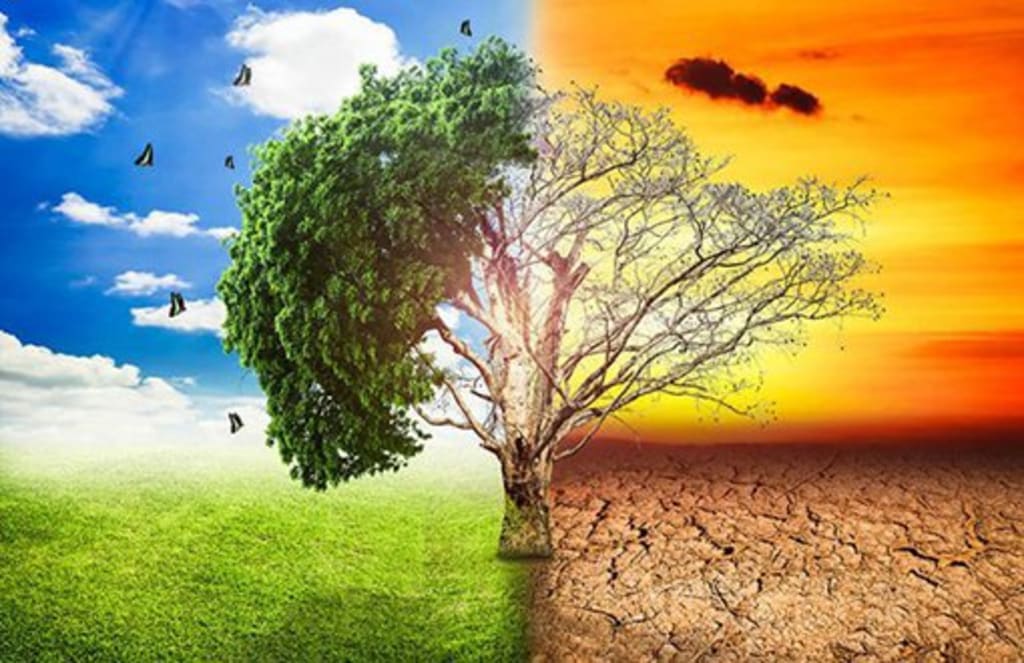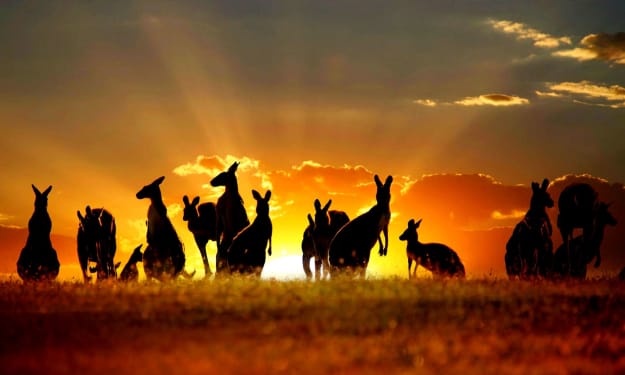Effects and Solutions of Global Warming
Global Warming

Global warming, or the increase in the Earth's average surface temperature due to rising levels of greenhouse gases, is one of the most significant environmental issues of our time. The main contributors to global warming are human activities such as the burning of fossil fuels, deforestation, and the use of non-renewable energy sources.
Global warming is a significant environmental issue that affects the entire planet. The burning of fossil fuels, deforestation, and the use of non-renewable energy sources are the main culprits that contribute to global warming. These activities release greenhouse gases into the atmosphere, which trap heat and cause temperatures to rise.
The effects of global warming are devastating, causing widespread and frequent natural disasters such as hurricanes, floods, and wildfires. Additionally, it leads to the melting of polar ice caps, which results in rising sea levels and coastal erosion. This, in turn, causes flooding in low-lying areas and threatens the habitats of marine animals.
To combat global warming, governments and individuals must work together to reduce carbon emissions by implementing green initiatives such as renewable energy sources, energy-efficient technologies, and waste reduction programs. Governments can also invest in research and development to create new technologies and alternative fuels that reduce greenhouse gas emissions.
The effects of global warming are far-reaching and devastating. As temperatures continue to rise, we are seeing more frequent and severe natural disasters such as heatwaves, droughts, wildfires, and floods. The melting of the polar ice caps and glaciers is also causing sea levels to rise, which threatens to inundate coastal areas and displace millions of people.
In addition to these direct effects, global warming is also having a profound impact on ecosystems and the natural world. As habitats become warmer and drier, many species are struggling to survive, leading to mass extinctions and the loss of biodiversity. Changes in temperature and precipitation patterns are also altering the timing of seasonal events such as flowering and migration, throwing off the delicate balance of ecosystems and food chains.
To combat global warming, we must take urgent action to reduce our carbon footprint and transition to a more sustainable and low-carbon future. This can be achieved through a combination of individual and collective efforts. Individuals can make small changes to their lifestyles such as reducing energy consumption, using public transportation, and eating a more plant-based diet. Governments can also play a critical role by investing in renewable energy sources, regulating carbon emissions, and incentivizing sustainable practices in businesses and industries.
One promising solution is the adoption of renewable energy sources such as solar, wind, and hydropower. These sources of energy do not produce greenhouse gas emissions and are becoming increasingly cost-effective and accessible. Another solution is the use of carbon capture and storage technology, which involves capturing carbon dioxide emissions from power plants and storing them underground.
However, transitioning to a low-carbon future will require a significant shift in our thinking and behavior. We must prioritize the long-term health of our planet over short-term economic gains and embrace a more sustainable way of living. This will require cooperation and collaboration across borders and industries, as well as investment in research and development to create new and innovative solutions to the problem of global warming.
In conclusion, global warming is a significant challenge that requires urgent action at all levels. By taking steps to reduce our carbon footprint, investing in renewable energy sources, and adopting a more sustainable way of living, we can mitigate the worst effects of global warming and ensure a healthier future for ourselves and future generations.





Comments
Dursun öztürk is not accepting comments at the moment
Want to show your support? Send them a one-off tip.